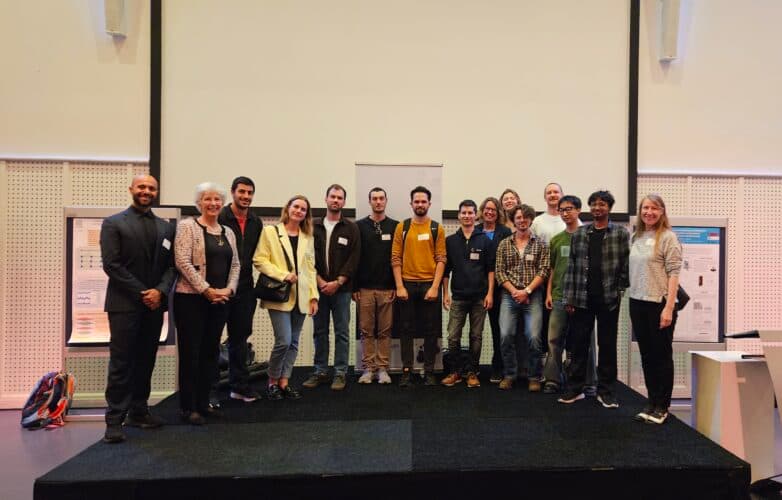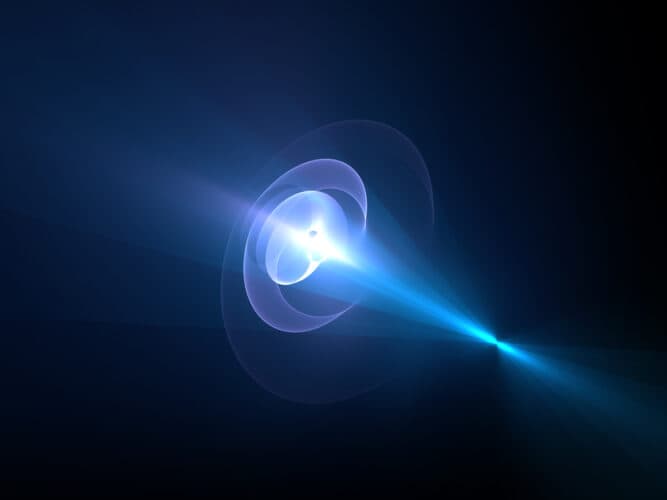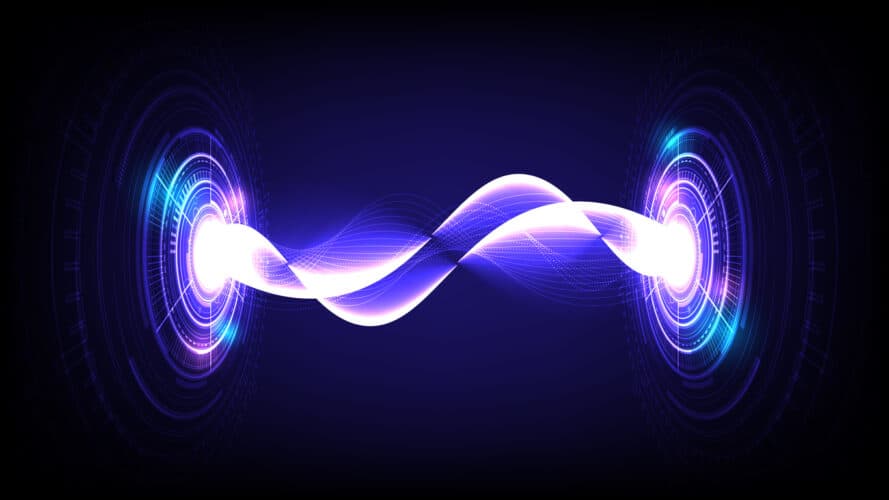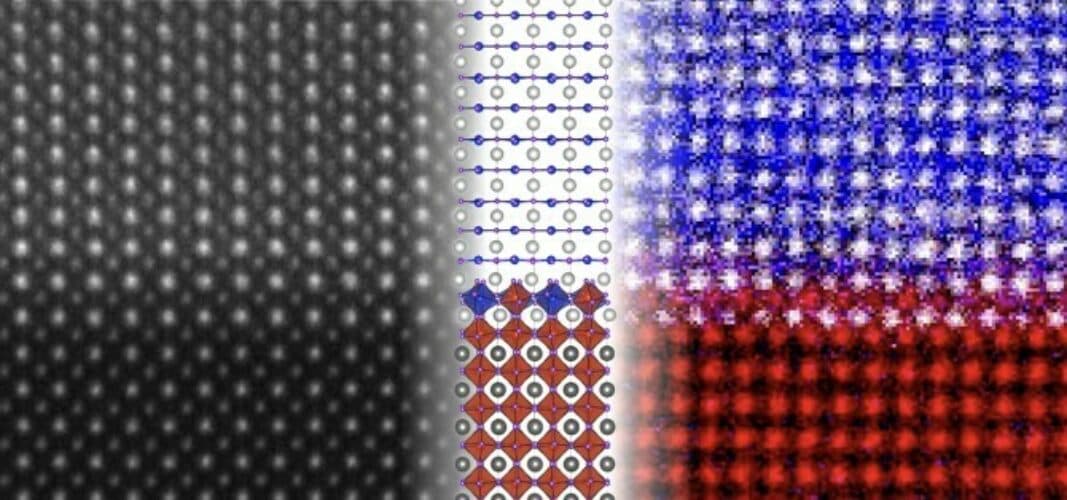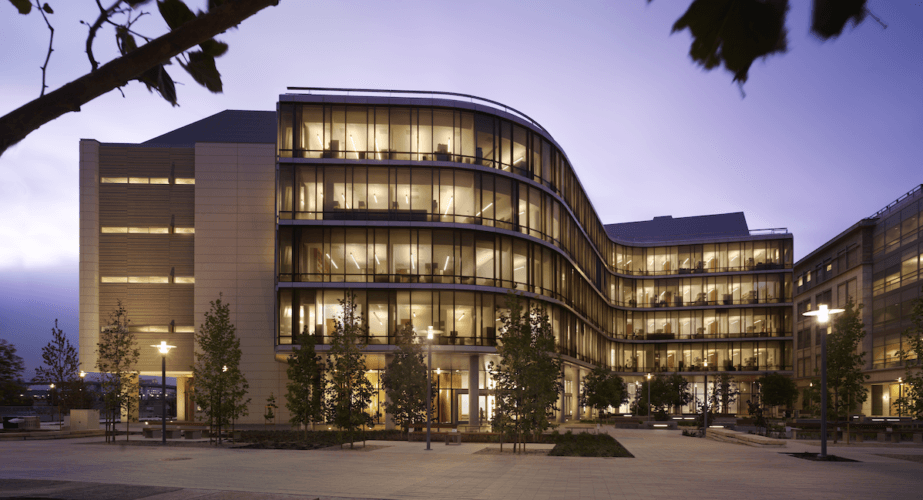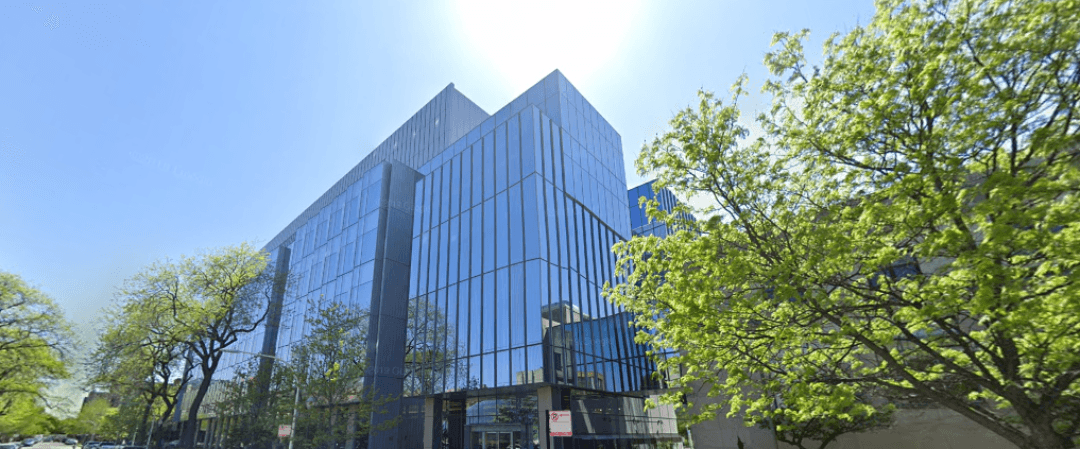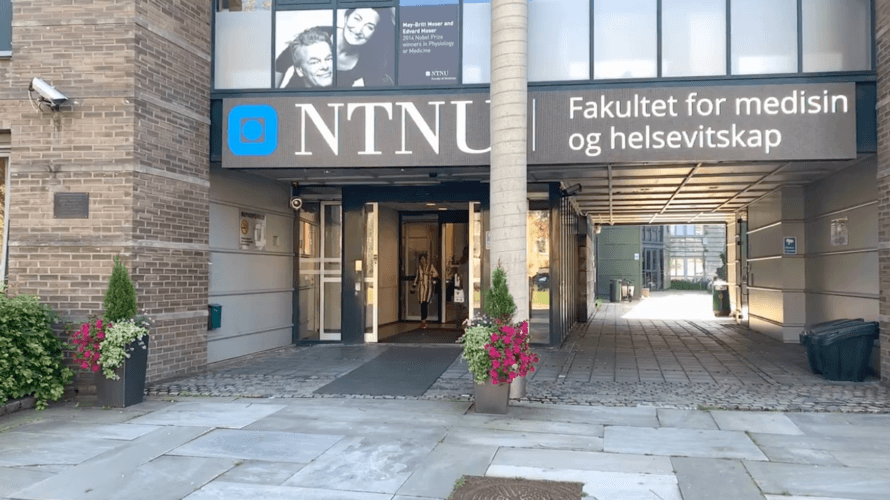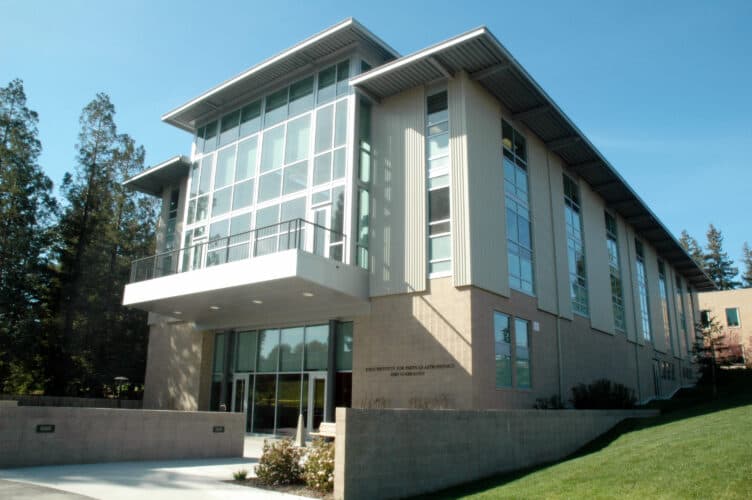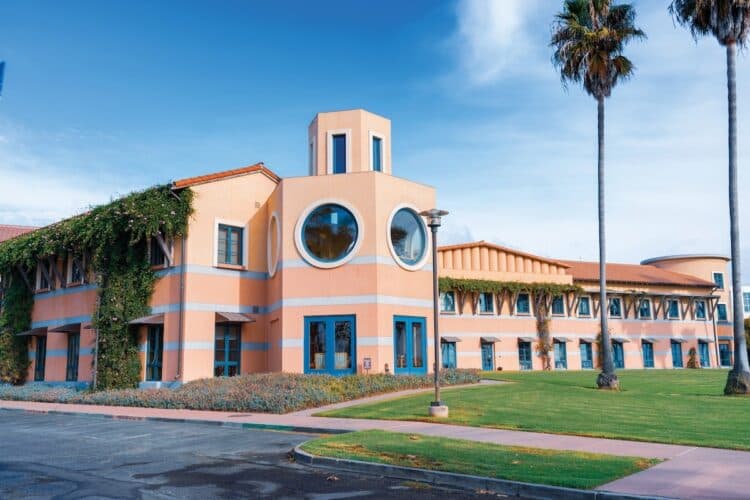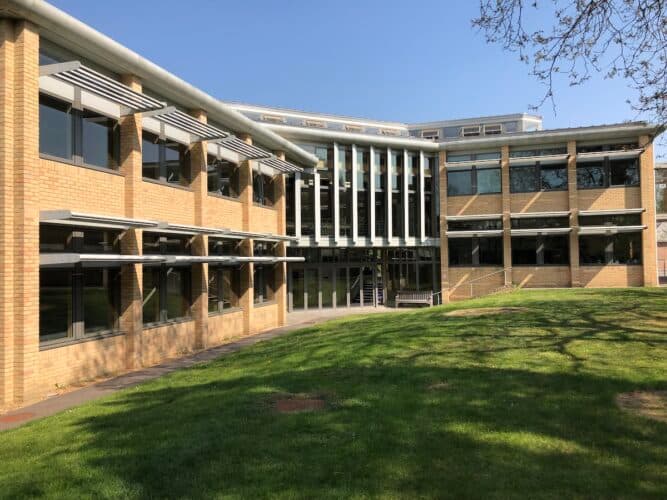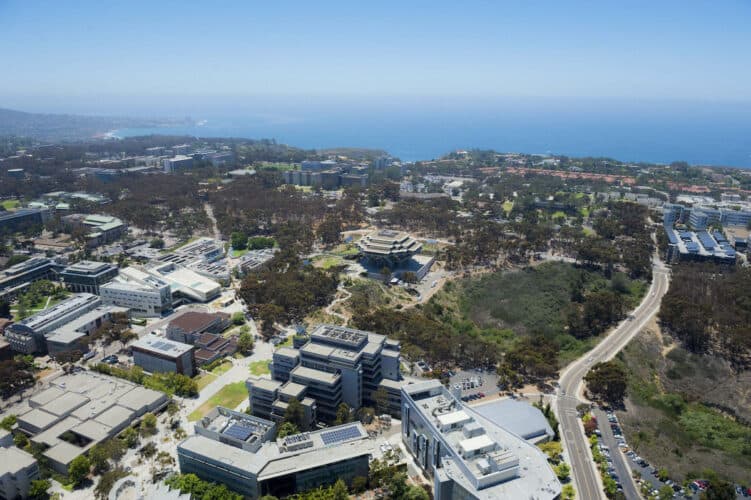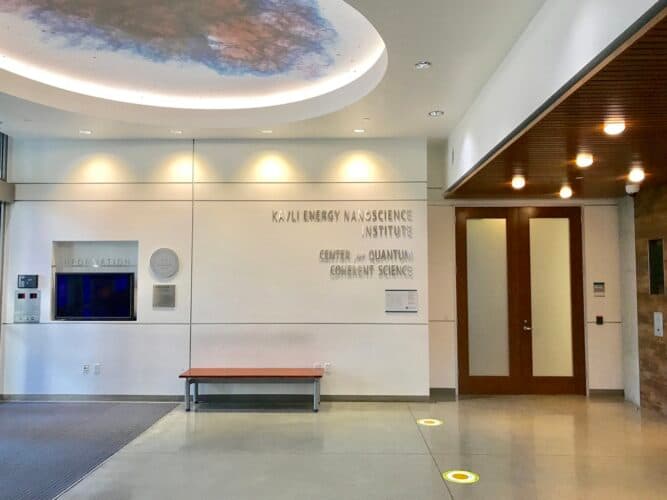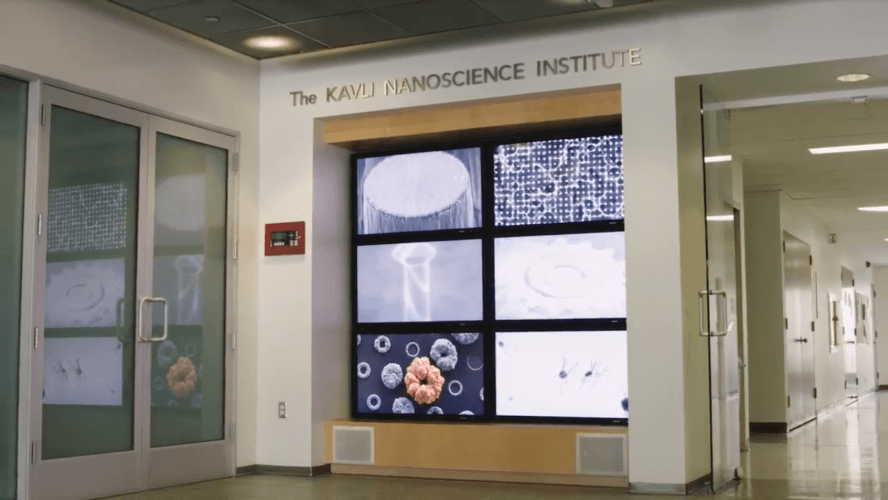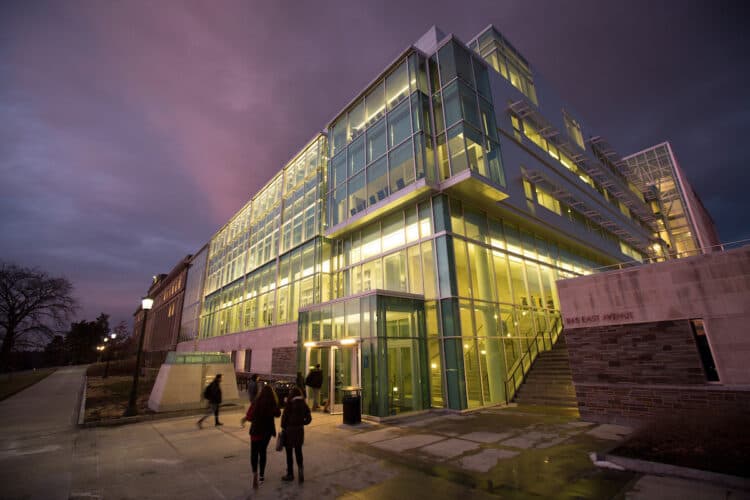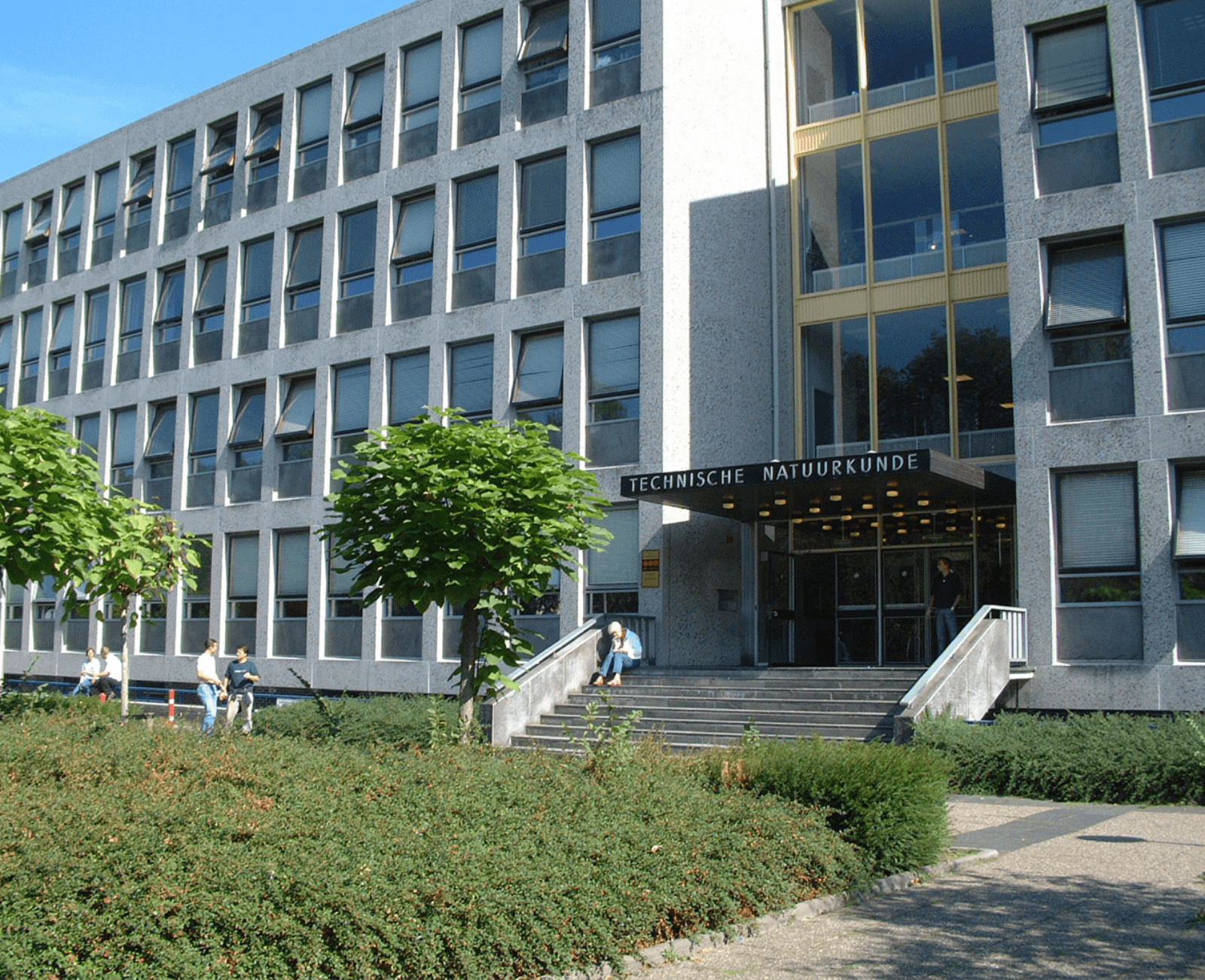
Delft University of Technology, NetherlandsKavli Institute of Nanoscience Delft
Exploring the theoretical and practical frontiers of nanoscience
At the Kavli Institute of Nanoscience Delft (KIND), researchers study new physics and exploit novel principles to develop new devices, materials and methods of fabrication. They explore the secret of protein nanomachinery in cells, the coupling of biological systems to solid state information processing, molecular electronics and quantum information processing.
FOUNDED 2004
Leadership
AREAS OF INQUIRY
- The electronic, magnetic and mechanical properties of molecules, assemblies of molecules and crystals of molecules.
- Fabrication of nanostructures, either top-down through electron-beam lithography or bottom-up through self-assembly from atoms or molecules.
- Advancing the technology of high-resolution electron microscopy for both study and fabrication.
- Studying biomolecules in order to understand the “nanomachinery” of proteins in cells and biological systems
- Developing new structures, such as nanopores and nanofluidic channels, to study biomolecules.
- Creating new devices based on the physics of photonic (light) and electronic waves at the nanoscale.
- Investigating spin transport, how the interplay between spin and charge of electrons determines the behavior of semiconducting and superconducting materials and electronic devices.
- Working toward quantum computing by understanding and controlling the quantum properties of structures such as superconducting rings, quantum dots, nanowires and carbon nanotubes.
The Kavli Foundation and TU Delft have committed to additional support for the Kavli Institute of Nanoscience Delft (KIND) for the next decade
Nov 25, 2025
Nanoscience Science Spotlights
Physicists and biophysicists search for missing link between quantum computing, sensing and communication
Aug 23, 2023
Nanoscience Research Highlights
Research Highlights from Kavli Nanoscience Institutes
May 16, 2023
Astrophysics Research Highlights
Remarkable basic research in astrophysics, theoretical physics, nanoscience, and neuroscience
Dec 19, 2022
More Institutes
At Kavli Institutes around the world, scientists explore the frontiers of science in the fields of astrophysics, nanoscience, neuroscience and theoretical physics.
See all institutesNeuroscience
University of California, San Francisco
Astrophysics
Peking University-Beijing
Massachusetts Institute of Technology
Astrophysics
University of Chicago
Neuroscience
Rockefeller University
Neuroscience
Johns Hopkins University
Neuroscience
Norwegian University of Science and Technology
Stanford University
Theoretical Physics
University of California, Santa Barbara
Astrophysics
University of Cambridge
Theoretical Physics
University of Chinese Academy of Sciences
Neuroscience
University of California, San Diego, and the Salk Institute for Biological Studies
Nanoscience
University of California, Berkeley
Nanoscience
University of Oxford
Nanoscience
California Institute of Technology
Cornell University
University of Tokyo
Neuroscience
Columbia University
Neuroscience
Yale University


